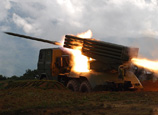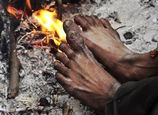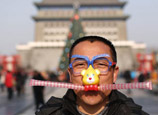
The China Securities Regulatory Commission (CSRC) launched a national share transfer system in Beijing for non-listed small- and medium-sized enterprises (SMEs) Wednesday, a move aimed at building a multi-tier capital market in China and widening the financing channels open to smaller businesses, experts told the Global Times.
The transfer system will serve as a management institution for China's national over-the-counter (OTC) market. Unlike stock exchanges in Shanghai and Shenzhen, the system will act mainly as a supervisor and a platform for OTC trading, which had previously been done exclusively on systems provided by the Shenzhen Stock Exchange.
The establishment of the share transfer system will open the door for more development of China's OTC market, Cai Junyi, chief investment consultant from Shanghai Securities, told the Global Times.
Currently, there are 256 companies on China's OTC market - with 56 trading on the Third Board, a platform for delisted companies to trade shares, and another 200 traded on the New Third Board, a board for fledging high-tech companies - however, off-exchange trading volume has long remained light, according to information from Shenzhen Securities Information Co, an official information disclosure institution designated by the CSRC.
"With the launch of the SME share transfer system, more standardized listing and trading regulations for the OTC market are expected to be on the way, which may allow more companies and investors to participate in the market and boost liquidity," Cai explained.
The CSRC is at work on and expects to soon issue regulations for the SME share transfer system, which will set no compulsory financial criteria for applicants and will simplify the approval procedure, Yao Gang, vice chairman of the CSRC, said at a forum last month.
"For China's many SMEs, the growth of the OTC market means a lot, as it will provide them another source of financing," Cai said. "OTC trade offers an important supplement for China's capital market in addition to the existing main boards, the SME board and the ChiNext," he said.
China's OTC market emerged in 2001 with the launch of the Third Board. In 2006, the New Third Board was created with a goal of bringing funding to high-tech enterprises operating in Beijing's Zhongguancun Science Park. In 2012, the pilot zone broadened to include high-tech areas in Shanghai, Wuhan, Hubei Province, and Tianjin.
















 'Sister House' case urges efforts in combating corruption in affordable housing
'Sister House' case urges efforts in combating corruption in affordable housing


![]()
